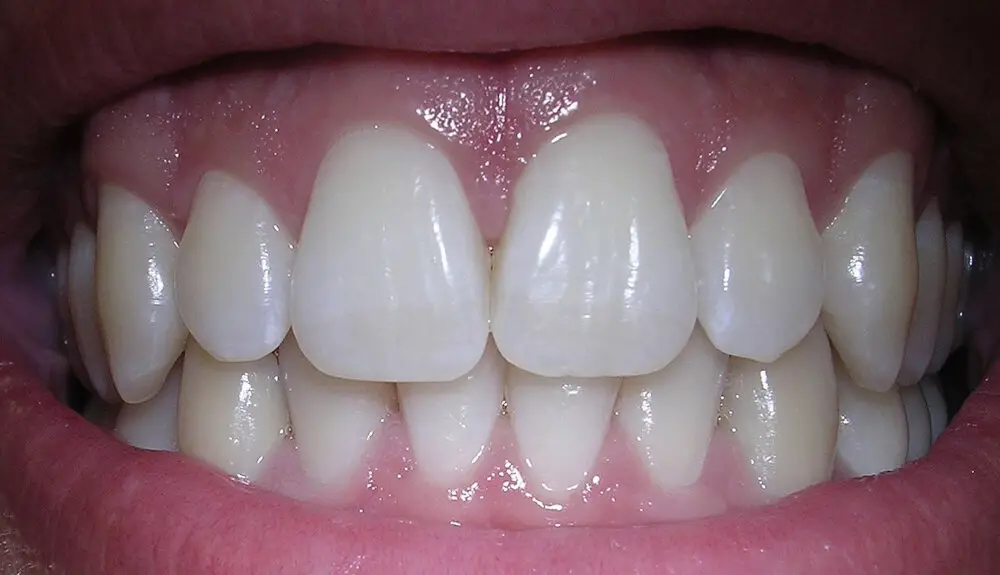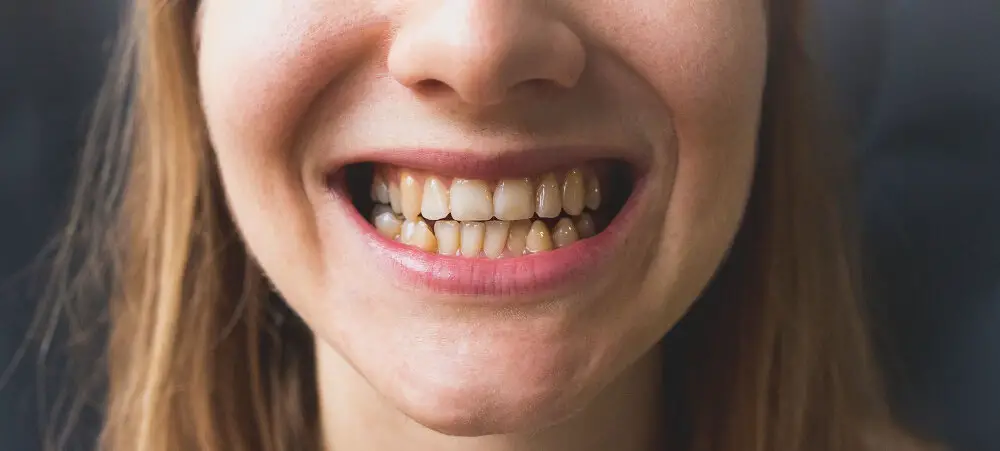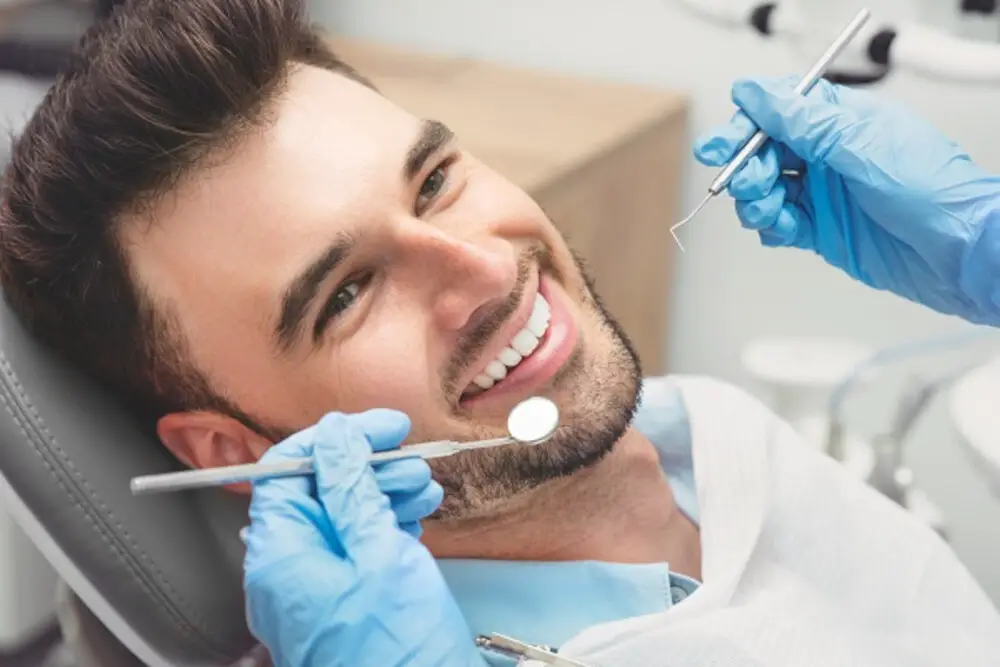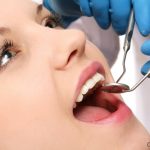Smoking After Wisdom Teeth Extraction: How Long Should You Wait?

Wisdom teeth extraction is a common dental procedure that is done to remove the third molars at the back of the mouth. It is usually done to prevent overcrowding in the mouth, to prevent infections, or to remove impacted teeth. After the extraction, patients are advised to take certain precautions to ensure proper healing and avoid complications. One of the most common questions asked by patients after wisdom teeth extraction is how long they should wait to smoke. Smoking after wisdom teeth extraction can be harmful as it can delay the healing process and increase the risk of complications such as dry socket. Dry socket is a condition that occurs when the blood clot that forms after the extraction is dislodged, exposing the bone and nerves underneath. This can be extremely painful and can lead to infection. It is, therefore, important for patients to know how long they should wait before smoking to avoid complications and ensure a smooth recovery. In this article, we will explore the effects of smoking on the healing process and provide guidelines on how long to wait before smoking after wisdom teeth extraction.
Wisdom teeth extraction is a common dental procedure that involves removing one or more of the four molars located at the back of the mouth. The purpose of this procedure is to prevent overcrowding, infections, and other dental issues that can arise when these teeth don’t have enough room to grow properly. After the extraction, it’s important to avoid smoking for at least 48 to 72 hours to allow the blood clot to form and reduce the risk of complications such as dry socket. Smoking can also delay the healing process, increase the risk of infection, and cause other complications like bleeding, swelling, and pain. Therefore, patients should refrain from smoking or using any tobacco products for as long as possible after the wisdom teeth extraction to ensure a smooth and successful recovery.
Why smoking after wisdom teeth extraction is harmful

Smoking after wisdom teeth extraction is harmful due to the negative effects of smoking on the healing process. Smoke from cigarettes contains harmful chemicals that can irritate the surgical site, causing inflammation, infection, and delayed healing. The heat and suction created by smoking can also dislodge the blood clot that forms over the extraction site, leading to a painful condition known as dry socket. Dry socket occurs when the bone and nerves in the extraction site are exposed, causing severe pain and delaying the healing process. Furthermore, smoking after wisdom teeth extraction can also increase the risk of complications such as infection, bleeding, and swelling. Nicotine in cigarettes constricts blood vessels, reducing blood flow to the surgical site and slowing down the healing process. This can lead to a longer recovery time, increased pain, and a higher risk of complications. Therefore, it is important for individuals who have had wisdom teeth extracted to refrain from smoking for at least 72 hours after the procedure to ensure proper healing and minimize the risk of complications.
Smoking can have detrimental effects on the healing process after wisdom teeth extraction. The chemicals in cigarettes can interfere with blood flow and oxygen delivery to the affected site, impeding the body’s natural healing mechanisms. Nicotine in particular is known to constrict blood vessels, reducing the oxygen supply to the tissues and slowing down the healing process. Smoking can also increase the risk of infection and dry socket, a painful condition that occurs when a blood clot is dislodged from the socket, exposing the nerves and bone underneath. To ensure proper healing and reduce the risk of complications, it is recommended to refrain from smoking for at least 72 hours after wisdom teeth extraction.
After wisdom teeth extraction, smoking can significantly increase the risk of developing dry socket, a painful condition that occurs when the blood clot that forms at the extraction site is dislodged or dissolves before the wound has fully healed. Dry socket can delay the healing process and cause intense pain that radiates to the ears and jaw. Other complications associated with smoking after wisdom teeth extraction include delayed healing, infection, bleeding, and nerve damage. Smoking can also impair the immune system, making it harder for the body to fight off infections. To minimize these risks and promote optimal healing, it is recommended to avoid smoking for at least 72 hours after the surgery and to quit smoking altogether if possible.
How long to wait before smoking after wisdom teeth extraction

When it comes to wisdom teeth extraction, the recovery process can be quite daunting, especially if you’re a smoker. Smoking after wisdom teeth extraction can significantly slow down the healing process and increase the risk of complications such as dry socket. As such, it’s essential to wait for an appropriate amount of time before smoking again. Generally, dentists recommend waiting at least 72 hours before smoking after wisdom teeth extraction. This is because the first few days following the procedure are crucial for the formation of a blood clot, which helps to protect the extraction site. Smoking can interfere with the blood clot formation, leading to dry socket, which is a condition characterized by intense pain and slow healing. That being said, the optimal time to wait before smoking after wisdom teeth extraction can vary from person to person. Factors such as the number of teeth extracted, the complexity of the procedure, and the individual’s overall health and smoking habits can all influence the recovery time. As such, it’s always best to consult with your dentist or oral surgeon for specific instructions on when you can resume smoking. Additionally, it’s important to note that smoking can not only affect the healing process but also increase the risk of infection, delay pain relief, and cause other complications. As such, quitting smoking altogether is the best way to ensure a speedy and successful recovery following wisdom teeth extraction.
Dentists and oral surgeons provide patients with a set of guidelines to follow after wisdom teeth extraction to ensure a smooth and successful recovery. One of the most important guidelines is to avoid smoking for a certain period of time. Smoking after extraction can cause a range of complications such as dry socket, infection, and delayed healing. While the duration of abstinence from smoking varies depending on the patient and the extent of the extraction, dentists and oral surgeons typically recommend waiting at least 48-72 hours before smoking again. It is also important to avoid other substances that may irritate the surgical site, such as alcohol and hot or spicy foods. By following these guidelines, patients can minimize their risk of complications and promote optimal healing after wisdom teeth extraction.
There are various factors that can affect the healing time after wisdom teeth extraction. One of the most significant factors is smoking, which can delay the healing process due to the nicotine and other harmful substances present in cigarettes. Other factors include age, overall health, and the extent of the surgery. People who are older or have underlying health conditions may experience slower healing times than those who are younger and healthier. Additionally, those who undergo more extensive surgeries, such as impacted wisdom teeth removal, may require more time to fully recover. Proper postoperative care, including following the dentist’s instructions and maintaining good oral hygiene, can also play a crucial role in the healing process.
Alternatives to smoking during recovery

When recovering from wisdom teeth extraction, smoking can be detrimental to the healing process. Smoking can delay healing, increase the risk of infection, and cause dry sockets. For those who are struggling with nicotine addiction, there are alternatives to smoking during recovery that can help manage cravings. One such alternative is nicotine replacement therapy, which can come in the form of gum, patches, or lozenges. These products can help ease withdrawal symptoms and reduce cravings without the negative effects of smoking. Additionally, engaging in physical activity or finding a healthy distraction can also help manage cravings and reduce the desire to smoke. Some examples of healthy distractions include reading, drawing, or practicing meditation. Another alternative to smoking during recovery is to seek support from family, friends, or a support group. Quitting smoking can be challenging, and having a support system can make all the difference in staying motivated and accountable. Support groups, in particular, can provide a sense of community and shared experience that can help individuals stay on track with their recovery. Additionally, seeking professional help from a therapist or counselor can also be beneficial in managing nicotine addiction. A therapist can provide guidance and support in developing coping mechanisms to deal with cravings and the underlying issues that may be contributing to addiction. Overall, there are many alternatives to smoking during recovery that can help manage cravings and support healing.
Nicotine is a highly addictive substance, and quitting smoking can be a challenging task for many individuals. Nicotine replacement therapy (NRT) options are available to help people quit smoking by providing a controlled dose of nicotine to the body. The most common NRT options include nicotine gum, patches, lozenges, inhalers, and nasal sprays. Nicotine gum and lozenges are designed to be chewed or sucked on, while nicotine patches are placed on the skin. Inhalers and nasal sprays deliver nicotine through the respiratory system. NRT options can help reduce withdrawal symptoms such as cravings, irritability, and restlessness. It’s important to consult with a healthcare provider to determine which NRT option is best suited for an individual’s needs.
Managing cravings can be a challenging task, especially for those who have just undergone wisdom teeth extraction. To control cravings, it is essential to identify the triggers that cause them. One way to manage cravings is to find healthy alternatives that can satisfy the urge. For example, instead of smoking, one can try chewing gum or sucking on a hard candy. Another tip is to distract oneself by engaging in other activities such as reading, watching a movie, or going for a walk. It is also important to stay hydrated and maintain a balanced diet to reduce the chances of experiencing cravings. Finally, seeking support from friends and family can also help manage cravings as they can provide motivation and accountability.
Risks of smoking too soon after wisdom teeth extraction

Wisdom teeth extraction can be a painful and complicated process, and it requires a lot of care and attention during the recovery period. One of the most significant risks of smoking too soon after wisdom teeth extraction is that it can lead to dry socket. Dry socket is a condition that occurs when the blood clot that forms after a tooth extraction is dislodged or dissolves, exposing the nerves and bone underneath. Smoking can cause negative pressure in the mouth, which can dislodge the blood clot and delay the healing process. Dry socket can be incredibly painful, and it can take several weeks to heal. It can also lead to infection, which can be dangerous and require additional treatment. Another risk of smoking after wisdom teeth extraction is that it can delay the healing process. Smoking can cause a decrease in blood flow to the mouth, which can slow down the healing process. Nicotine in cigarettes can also reduce the amount of oxygen that reaches the tissues, which can further delay the healing process. The longer it takes for the extraction site to heal, the greater the risk of complications, such as infection, delayed pain, or even permanent damage to the nerves. Therefore, it is crucial to avoid smoking for as long as possible after wisdom teeth extraction to ensure a smooth and successful recovery.
Dry socket is a painful complication that can occur after wisdom teeth extraction, and it is more likely to happen to smokers than non-smokers. This is because smoking can delay the healing process, causing the blood clot that forms in the socket to dislodge or dissolve prematurely. Other complications that can arise from smoking too soon after wisdom teeth extraction include infection, delayed healing, and increased pain and swelling. It is important to wait at least 72 hours after the procedure before smoking, and even then, it is best to avoid smoking for as long as possible to minimize the risk of complications.
Long-term smoking has damaging effects on oral health. Cigarette smoke contains thousands of harmful chemicals that can cause oral cancer, periodontal disease, and tooth loss. Smoking reduces blood flow to the gums, which can lead to gum recession and bone loss. It also weakens the immune system, making it harder for the body to fight off infections and heal after dental procedures. Smokers are also more likely to develop dry socket after wisdom teeth extraction, a painful condition where the blood clot is dislodged from the extraction site. Quitting smoking can improve oral health and reduce the risk of complications after dental procedures.
Waiting before smoking after wisdom teeth extraction is crucial for the healing process. Smoking can slow down the healing process and increase the risk of developing complications such as dry socket, infections, and delayed healing. The nicotine and chemicals in tobacco smoke can constrict the blood vessels and reduce blood flow to the surgical site, hindering the delivery of oxygen and nutrients to the tissues. This can lead to tissue damage, delayed healing, and increased pain. Additionally, smoking can introduce harmful bacteria and debris into the surgical site, increasing the risk of developing infections. Therefore, it is recommended to wait at least 72 hours after wisdom teeth extraction before smoking to ensure proper healing and prevent complications.
Prioritizing oral health is a crucial aspect of overall well-being, especially during the recovery period after wisdom teeth extraction. Smoking can severely hamper the healing process and lead to complications such as dry socket, infection, and delayed wound healing. It is essential to avoid smoking for at least 48 hours after the surgery and preferably for a more extended period to ensure optimal healing. Encouraging healthy oral habits such as regular brushing, flossing, and rinsing with saltwater can aid in faster recovery and prevent any adverse effects of smoking. Taking care of your oral health is not just important for the short-term recovery but also for long-term oral hygiene and overall health.
Conclusion

In conclusion, smoking after wisdom teeth extraction is not recommended. It can delay the healing process, increase the risk of infections, and cause dry sockets. Waiting at least 72 hours after the surgery is recommended, but it’s best to quit smoking altogether or at least reduce the frequency and intensity of smoking. It’s essential to follow the dentist’s instructions to ensure a speedy recovery and avoid any complications. In the long run, quitting smoking can not only improve oral health but also overall health and well-being.






